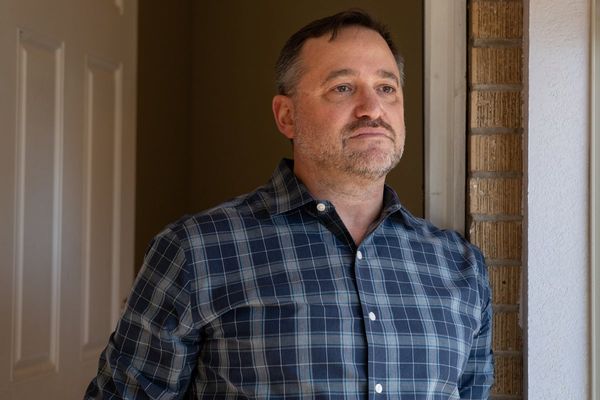
A Russian opposition activist arrested in Poland and due to go on trial next month has admitted he worked as an undercover agent for Russia’s FSB security service and informed on other opposition figures, court documents claim.
Igor Rogov, 30, has been associated with various opposition movements in the Russian city of Saransk, including Alexei Navalny’s Anti-Corruption Foundation and Open Russia, linked to the exiled businessman Mikhail Khodorkovsky.
Rogov and his wife left Russia in 2021, according to the court documents, and in 2022 they received visas for Poland, where they arrived a few days after the full-scale invasion of Ukraine and settled in the city of Sosnowiec.
Rogov was arrested by Polish authorities last summer, initially due to suspected links to an explosive package. Poland has been hit by a wave of arson and other sabotage attacks that involve one-time operatives on the ground and are believed to be run by Russian intelligence operatives.
Later, Rogov’s wife, Irina Rogova, was also arrested, and the couple were accused of cooperating with the FSB to inform on other Russian opposition activists.
Poland has arrested numerous people on charges of preparing or carrying out sabotage on behalf of Russia over the last two years. Many are Polish, Ukrainian or Belarusian citizens believed to have been recruited via Telegram for one-time paid jobs. Rogov’s case is unusual in that he is a Russian citizen and appears to have been in direct contact with the FSB for some years.
The Guardian obtained an anonymised copy of the indictment against Rogov and his wife from the Polish court. In accordance with local laws, he is referred to only as Igor R, but exiled Russian media outlets and other sources have identified the defendant as Rogov.
The files suggest a long history of cooperation with the FSB. Rogov admitted to interrogators that he had been approached by the security service several years ago while still in Russia and coerced into infiltrating the local branch of an opposition movement.
He said he was given a burner phone and sim cards to contact his FSB handler, and when “cooperation reached a higher level” he had in-person meetings at an unmarked apartment near the local FSB headquarters. “At that time, he also began to receive money in exchange for cooperation,” according to the indictment.
Rogov told his wife he had been recruited by the FSB, according to the indictment, which quotes her as saying he “probably received money for this, because he was not working at the time but he had money”.
Later, in Poland, Rogov asked his wife to help him transfer to his handlers an encrypted USB stick with reports on Russian activists and others in Poland who might be of interest to the FSB. He gave her the USB stick to take on a visit to Russia hidden in a package together with souvenirs from Poland, and an address to post it to.
Details from the indictment were previously published by the Polish outlet Wirtualna Polska, which also said Rogov had been blackmailed by the FSB to cooperate when in Poland, with the threat that if he did not, his father would be conscripted to serve in the Russian army.
Leonid Volkov, of the Anti-Corruption Foundation, said he could not recall ever meeting Rogov but that the case demonstrated typical methods used by the Russian authorities.
“This is not surprising. The FSB has always done this, still does it and will carry on doing so: finding young people with vulnerabilities, recruiting them and then sending them into opposition organisations,” he wrote on X.
Another part of the case against Rogov deals with a package that he was reported to have handled. The package contained the components of an explosive device and was addressed to Rogov, although he never received it. He said he had agreed to receive the package as a favour to a friend. A Ukrainian woman was also arrested over the package but has since been released.
Since 2022, Poland has made it hard for Russians to get visas, with exceptions made only for those in extreme humanitarian need or those such as Rogov with a background in opposition movements.
The first hearing in the trial of the Rogovs is due to take place on 8 December.
Additional reporting by Ada Petriczko







